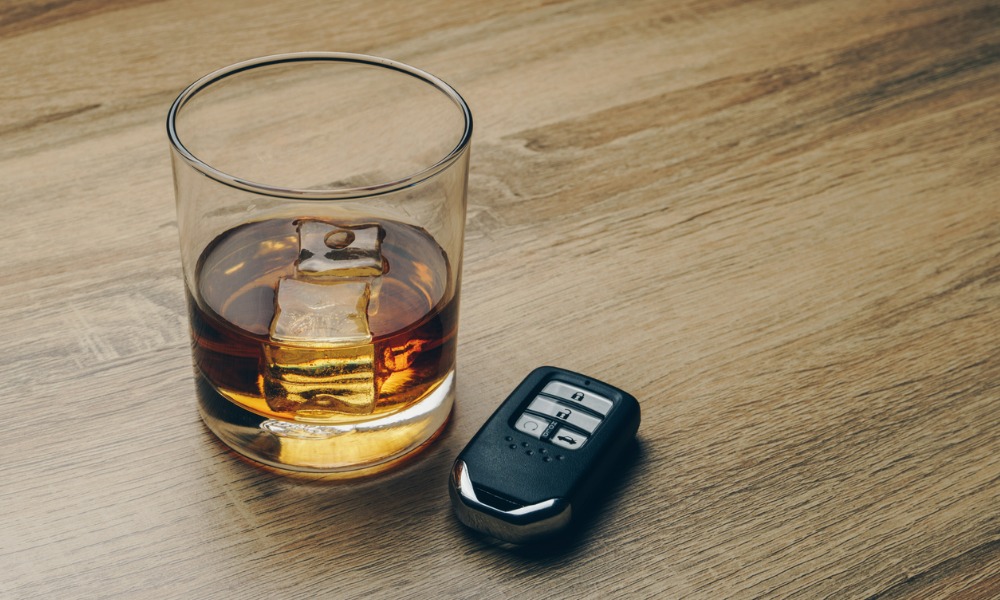
Fine of $1,000 wasn't cruel and unusual punishment, says appeal court

A fine of $1,000, or any other fine, did not amount to punishment so excessive such that it would outrage standards of decency and would be abhorrent or intolerable to society, the Nova Scotia Court of Appeal recently said.
Anas Islam Ankur and Jithin Chandran were relatively young men who came to Canada for their studies. They then worked here as foreign nationals under work permits.
Ankur pled guilty to damage to property under s. 430(4) of the Criminal Code and operating or having the care or control of a motor vehicle with a blood alcohol level greater than 80 mg per 100 ml of blood under s. 253(1)(b) of the Code. Chandran pled guilty to the charge of impaired operation of a conveyance under s. 320.14(1)(a) of the Code.
For both appellants, the judge granted a conditional discharge without threat of removal by immigration authorities. The Crown appealed to the Summary Conviction Appeal Court (SCAC). The SCAC judge fined each appellant $1,000.
The appellants filed a motion seeking a stay of the imposed convictions, as well as a general joint notice of appeal to the appellate court.
In R. v. Ankur, 2023 NSCA 2, the Nova Scotia Court of Appeal denied the appellants’ applications for leave to appeal and ordered the panel that would hear this case on June 15 to decide the issue.
First, the appellate court ruled that the appellants failed to show an arguable issue in their applications for leave to appeal and failed to demonstrate the necessity of a stay or other remedy to avoid frustrating their applications or rendering them nugatory.
A conditional or absolute discharge has never been an available sentence for impaired care or control, refusal of a breathalyzer demand, or care or control of a motor vehicle while having a blood alcohol level of over 80 mg of alcohol in 100 ml of blood, the Court of Appeal said.
“What would likely be incomprehensible to the average Canadian citizen is how a foreign national could receive a conditional discharge for a drinking and driving offence when that sentence option is beyond the reach of every Canadian citizen despite having an otherwise unblemished background,” wrote Justice Duncan Beveridge for the appellate court.
Regarding the immigration consequences, the Court of Appeal noted that the SCAC judge did not order the deportation of either appellant and instead fined them. This triggered either a likelihood or possibility of deportation under the Immigration and Refugee Protection Act, 2001. The immigration minister would determine the appellants’ status and ability to remain in Canada, the court said.
The appellate court said that the appellants’ pre-sentence reports were positive. Ankur made restitution for the damage that his actions caused, stopped driving, returned to his religion that made alcohol taboo, and committed himself to being a productive member of the community.
As for Chandran, he came from a good family in India, was nominated by the Nova Scotia’s immigration office for the Provincial Nominee Program through Express Entry, and was invited to apply for permanent residence. Chandran also said that he tackled his mental health issues, abstained from alcohol, and was in a positive long-term relationship.
Next, the Court of Appeal held that a fine of $1,000 did not amount to punishment that was cruel, unusual, or so excessive such that it would outrage standards of decency and would be abhorrent or intolerable to society.
Lastly, the appellate court found that the fact that the appellants might be unable to attend the appeal hearing in person did not constitute irreparable harm. The court noted that the appellants’ physical presence was unnecessary for the prosecution of their applications and that the court had the capacity and willingness to have them appear via audio-visual technology.